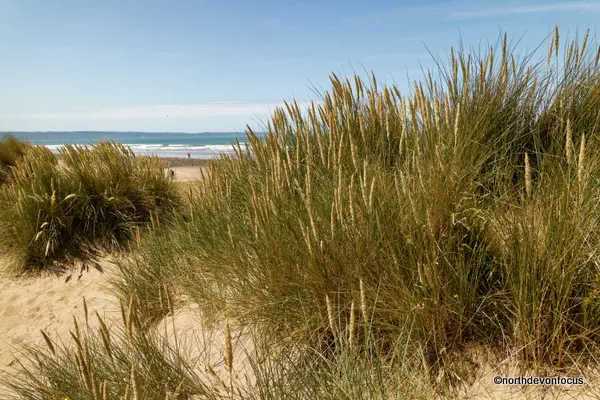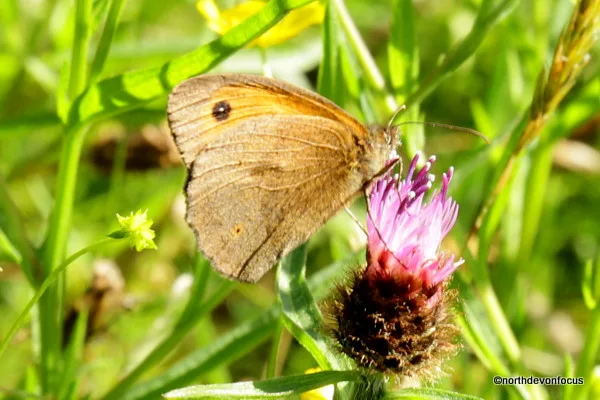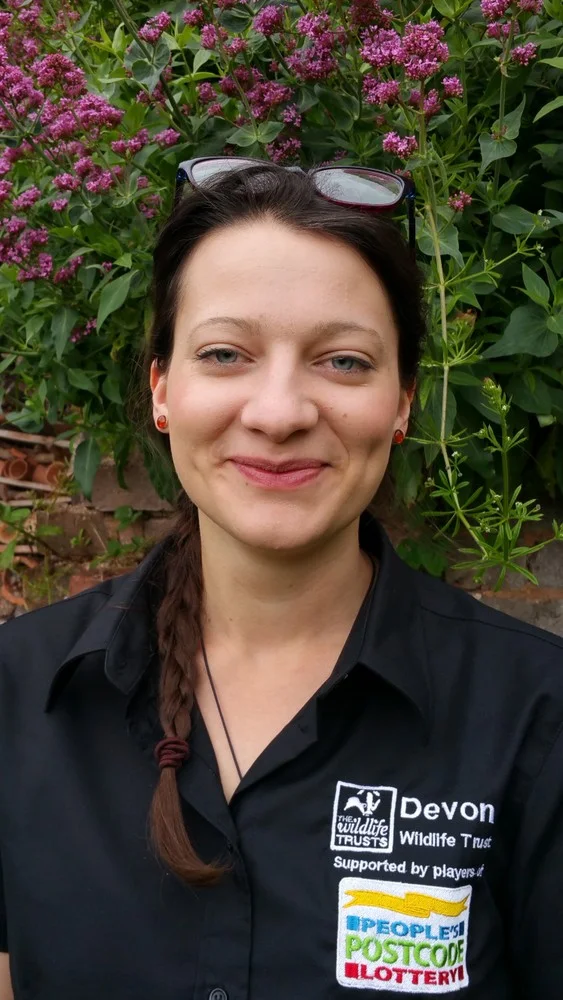It was announced in the local press yesterday (18th July) that the Northam Burrows Visitor Centre will be re-opening in time for the Summer holidays after the major fire which occurred over the Bank Holiday in May 2017.
Although the centre was badly damaged the rangers adapted well while the reconstruction work was underway as can be seen in the photo below taken on a sunny Saturday in June. The North Devon Biosphere Foundation loaned the events trailer which served as a temporary
display area and information point. If you know the name of the happy ranger please leave a comment
The re-opening will coincide with the launch of the Burrows’ Summer programme of events including talks and walks, rockpool rambles, herbal potions, dinosaur days, underwater crafts, circus skills and more.
Happy to Help - temporary display area and information point - Photo Pat Adams
Walk beside the sea beside Northam Burrows Country Park - Photo Pat Adams
Walk beside the sea beside Northam Burrows Country Park - Photo Pat Adams
The saviour of the Sand Dunes is Marram Grass - Photo Pat Adams
Braunton Burrows across the Torridge Estuary - Photo Pat Adams
"Business as usual" while reconstruction work is underway on the fire damaged Northam Burrows Visitor Centre - Photo Pat Adams
👀👀👀👀
---------------
Northam Burrows Country Park lies at the mouth of the Taw
Torridge Estuary and is protected from the raging Atlantic Ocean by a famous
Pebble Ridge which runs the length of the two mile stretch of beach at Westward
Ho! The Burrows consist of over 600 acres of coastal grassland, sand dunes and
salt marsh known as The Skern. This area certainly appears to be a bleak,
barren wasteland, but looks can be deceptive. It is a designated site of
scientific interest and although there is a dearth of vegetation on the actual
pebble ridge save the odd sprig of sea spurge, the Burrows supports a variety
of plant life including Dune Pansy, Glasswort, Sea Holly, Sharp Rush and Storksbill.
The saviour of the Sand Dunes is Marram Grass which grows vigorously in this
inhospitable landscape. This common land is shared happily by all manner of
tiny creatures, birds, butterflies, horses and sheep as well as golfers and
walkers. The oldest links course in England is sited within the park and a
separate section is set aside for local horse riding stables.(Article North Devon Focus on Northam Burrows)



























